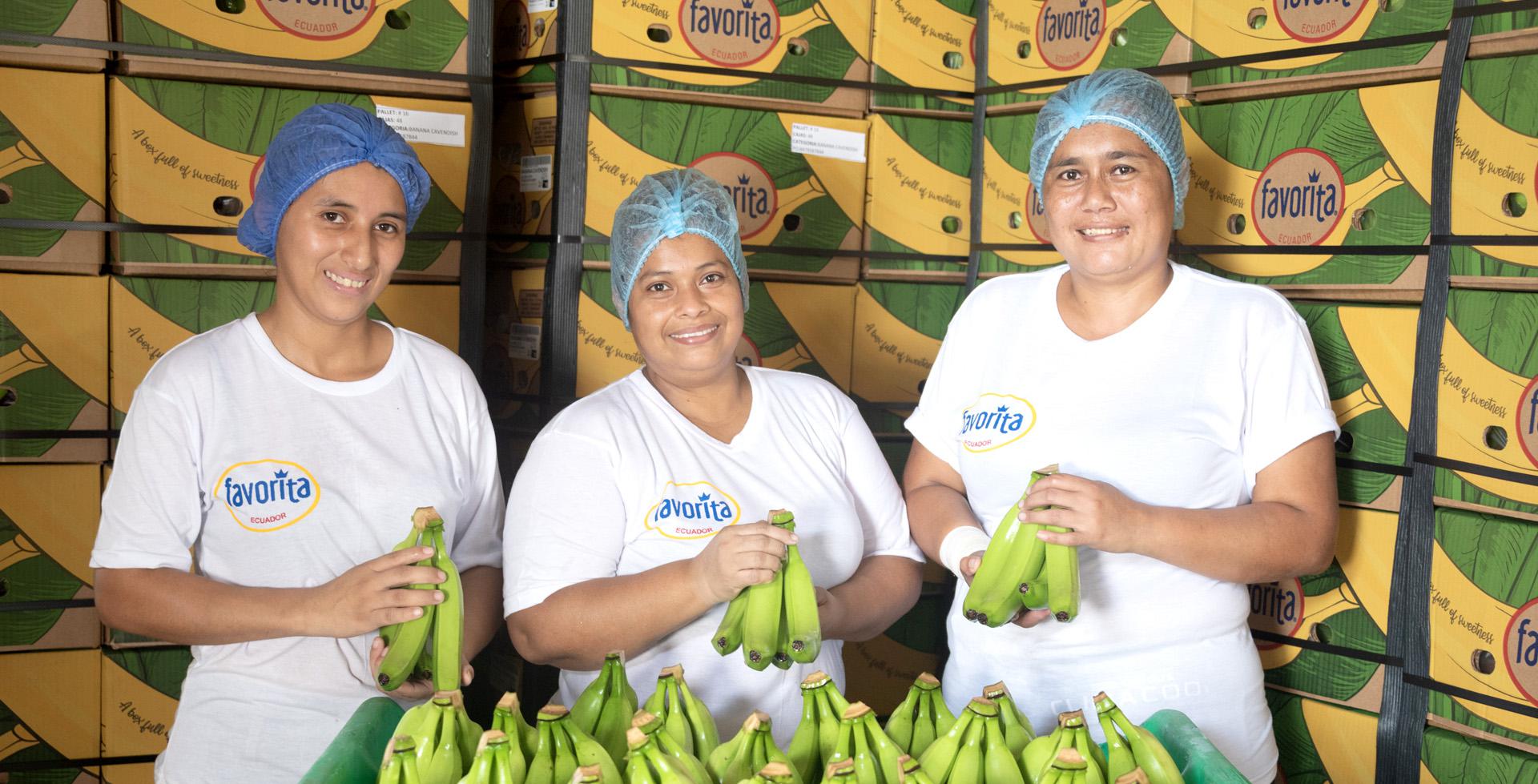REYBANPAC, together with other leading companies, continues to promote sustainability and gender equality
2024-05-02"Women at the core of sustainability" was the theme that brought together for the fourth time representatives of leading Ecuadorian companies gathered in the “Sustainability Panel”, a initiative that began in September 2023 with a series of meetings whose primary objective is to encourage other companies and society in general to adopt good practices related to the Sustainable Development Goals (SDGs).
This fourth panel, which was transmitted through an X space by the digital media GK Ecuador, was made up of women leaders from the companies: Gisella Wong, vice president of REYBANPAC; Sylvia Banda, communications and CSR manager of Grupo Difare; Lorena Luna, sustainability manager of Veolia Ecuador; and Carla Hernández, senior legal counsel of Unilever Ecuador & Venezuela. They addressed issues such as corporate initiatives for gender equality and how to break the "glass ceilings" that hinder women's professional development.
During her speech, Gisella Wong pointed out that REYBANPAC has women in leadership positions at all levels in different areas of the organization and that they all play an important role in achieving sustainability objectives.
The Vice President of REYBANPAC also highlighted the efforts to promote the role of women in agriculture: "In our agricultural operation on farms, we value the participation of women and seek to increase it. One example of this is that Reybanpac has training programs aimed specifically at its female agricultural workers to provide them with growth opportunities and encourage greater participation by women in specialized tasks that have traditionally been performed by men, and thus enable them to earn better salaries," she explained.
Carla Hernández added that Unilever seeks to ensure that all leadership positions are made up of at least 50% women to guarantee them a prominent place within the organization.
"Society's paradigms are obstacles to achieving gender equality. This means that many women, despite having opportunities, decide to abandon them to assume the social role imposed on them. In other words, beyond the economic issue, there is a societal issue," she added.
In this regard, Lorena Luna highlighted initiatives carried out by Veolia Ecuador, such as, for example, its women's vacation program, in which daughters between 15 and 18 years of age of employees can learn about technical and scientific work. "With this, we are demystifying the fact that certain tasks are performed almost exclusively by boys and men. This also means that, from a very young age, women will have the curiosity or the intention to choose this type of role".
Sylvia Banda highlighted DIFARE's selection and promotion processes, which are carried out through the evaluation of skills under the same conditions, thus generating equal opportunities for all, regardless of gender or age. She also highlighted the positive impact generated by the 'GD Women in Pharmaceutical Retail Certification program:
"Thanks to this program, the necessary tools were given to the more than 180 women who participated by receiving a 60-hour training, which not only prepared them to join a pharmaceutical business, but also any other retail," she mentioned.
In relation to the obstacles faced in the implementation of sustainable practices, there were diverse opinions and important contributions. For Gisella Wong (REYBANPAC), "One of the limitations is the high level of investment required for technology and infrastructure. It is important to provide support through incentives and public policies that facilitate companies' transition to more sustainable practices," she said.
Meanwhile, Lorena Luna (VEOLIA) said that "society does not necessarily have an adequate perception of the added value that a service or product made with sustainable practices can have. Today, the perception of value regarding how a product is made or a service is developed, and the efforts or investments made by a company to be sustainable are not necessarily valued in the market. There is a lack of regulations that encourage sustainable practices".
Sylvia Banda (GRUPO DIFARE) highlighted the importance of responsible communication and of involving the whole of society: "Ethical, transparent and timely communication is the path that generates trust and drives alliances, which is another challenge. There is a lack of efforts between sectors and within the same industries to achieve objectives that would benefit us all".
Finally, Carla Hernández (UNILEVER) insisted that "we must involve society, not only in achieving gender equity, but also in valuing the efforts of companies that have plans in place and clear sustainability goals".
Through this alliance for sustainability, Reybanpac, together with other companies, will continue to promote forums to address relevant issues for business and society.
